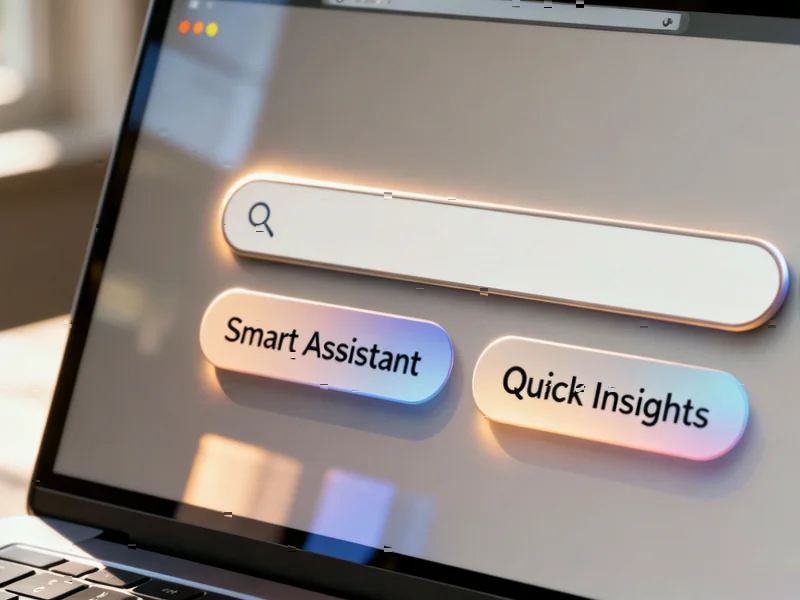According to Digital Trends, Apple is reportedly choosing Google’s Gemini as the foundation for Siri’s long-awaited AI overhaul, following CEO Tim Cook’s confirmation that Siri’s “AI brain transplant” will arrive next year. The decision comes after Apple evaluated both Anthropic’s Claude and Google’s Gemini, ultimately selecting Google’s model despite Claude being deemed technically superior. This partnership would mark a significant shift from Apple’s current approach of using ChatGPT for tasks Siri cannot handle through its Apple Intelligence framework. The move suggests Apple has abandoned its in-house “LLM Siri” development ambitions in favor of leveraging Google’s proven AI infrastructure.
The Unthinkable Strategic Surrender
Apple’s potential embrace of Gemini represents one of the most significant strategic concessions in modern tech history. For a company that has built its entire ecosystem around vertical integration and control, outsourcing the intelligence behind its flagship voice assistant to its primary ecosystem rival is unprecedented. This isn’t merely a partnership—it’s an admission that Apple has lost the foundational AI race. While Apple has historically partnered with Google for search through their multi-billion dollar search deal, embedding Gemini at Siri’s core represents a far deeper dependency that could fundamentally alter Apple’s value proposition.
The Coming Ecosystem Erosion
The most immediate risk for Apple lies in ecosystem differentiation. If Siri becomes essentially “Gemini with an Apple wrapper,” what compelling reason remains to choose iPhone over Android for AI-driven experiences? Google will inevitably reserve its most advanced Gemini features for its own Pixel devices and Android ecosystem, creating a permanent capability gap. We’ve seen this pattern before with Google’s approach to Gemini Nano on-device processing for scam detection—features that Google explicitly markets as making Android safer than iPhone. This partnership could institutionalize Apple as a second-class AI citizen in its own ecosystem.
The Innovation Stagnation Cycle
By outsourcing Siri’s core intelligence, Apple risks entering a permanent innovation dependency cycle. The company’s legendary internal development culture—responsible for everything from the A-series chips to the Secure Enclave—has failed to deliver competitive AI capabilities. This failure comes despite Apple’s high-profile Apple Intelligence announcement just months ago. The talent exodus from Apple’s AI division will likely accelerate as top researchers seek environments where their work directly impacts products rather than playing second fiddle to Google’s technology.
The Privacy Paradox Deepens
Apple’s privacy-first positioning faces its most severe test yet. While the company claims all processing will occur on Apple’s private servers, the fundamental architecture will still rely on Google’s technology stack. This creates an inherent tension with Apple’s marketing narrative around privacy and could undermine consumer trust. Google’s history of privacy controversies and regulatory scrutiny presents a constant reputational risk that Apple will struggle to manage, especially in markets like the EU where data sovereignty concerns are paramount.
The 24-Month Outlook
Looking ahead, this partnership could trigger several cascading effects. First, we’ll likely see Google accelerate its AI feature differentiation on Pixel devices, creating a growing capability gap that Apple cannot quickly close. Second, Apple may become permanently dependent on Google for AI innovation, similar to Intel’s dependency on ASML for EUV technology. Third, the partnership could face intense regulatory scrutiny on both sides of the Atlantic, potentially forcing Apple to develop contingency plans with multiple AI providers. Most critically, this move signals that Apple sees AI as an infrastructure play rather than a core competency—a fundamental shift in strategy that could redefine its identity over the next decade.
The Inevitable Brand Damage
Perhaps the most overlooked consequence is the psychological impact on Apple’s brand narrative. Since Steve Jobs introduced Siri in 2011, Apple has positioned itself as the pioneer of intelligent assistants. Ceding this territory to Google represents more than a technical failure—it undermines Apple’s identity as an innovator. Consumers pay premium prices for Apple products based on the expectation of superior integration and experience. If that experience becomes fundamentally dependent on Google’s technology, the entire premium pricing structure comes into question. The bitter irony is that Apple might be saving Siri in the short term while sacrificing the very brand magic that made Siri matter in the first place.




